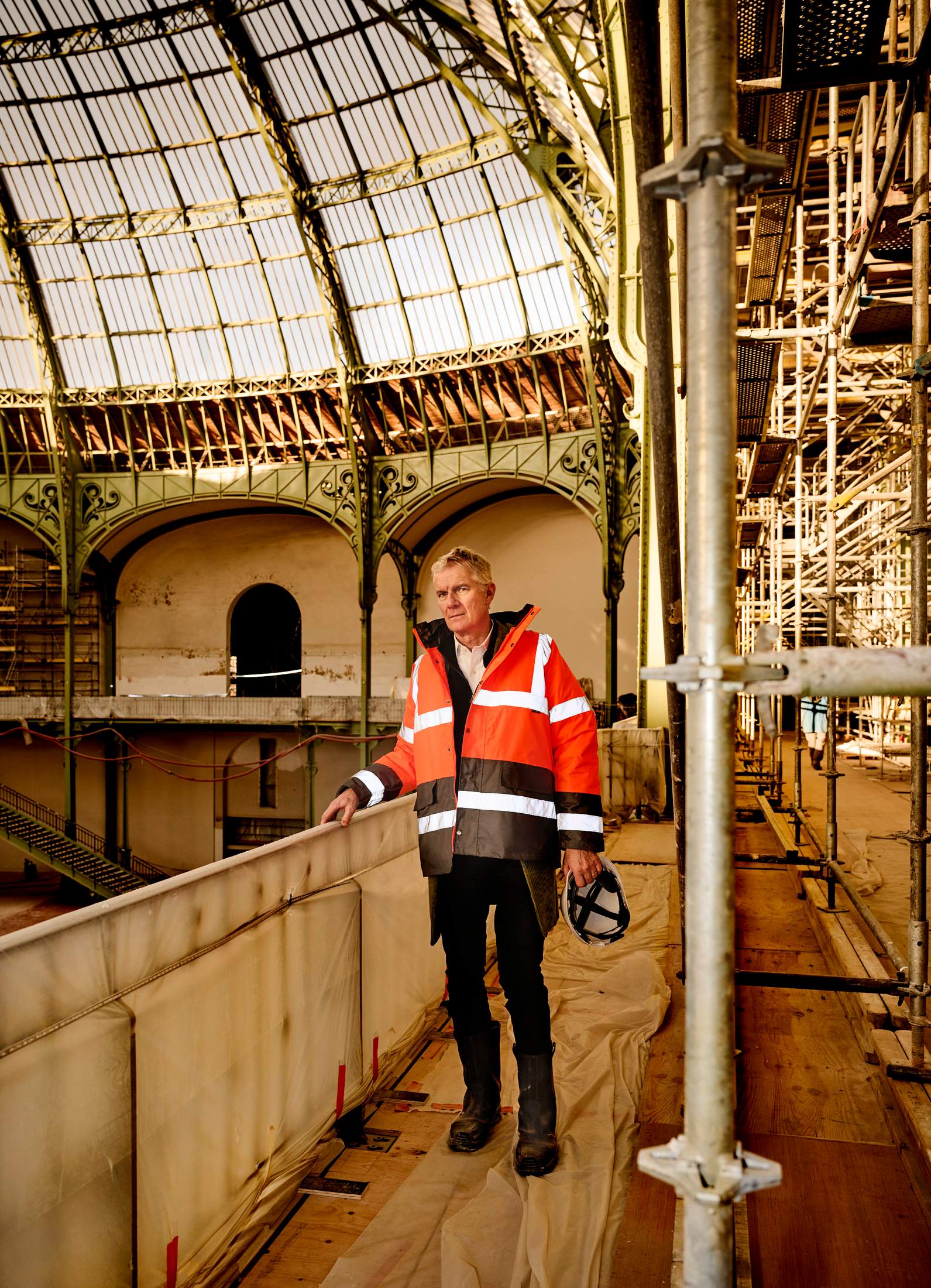The view from: Didier Fusillier / Paris
Grand Designs
As overseer of France’s revered cultural institutions, Didier Fusillier has ambitious plans for the capital’s most storied museum.

Didier Fusillier has one of the most prestigious cultural roles in France. As chairman of the Réunion des Musées Nationaux, he oversees 18 museums, including as director of Paris’s celebrated Grand Palais. Fusillier took the helm in September 2023 after being selected by Emmanuel Macron. One of his first and most pressing tasks has been overseeing the completion of the Grand Palais’ renovation, under way since 2021. And he has key deadlines to meet: a partial reopening must occur by July so that the palace can host the fencing and taekwondo events for the Paris 2024 Olympic Games. No pressure then.
“France has a robust tradition of restoring its monuments and this is no different,” says Fusillier. His hope is that the updated space will feel current, with a dynamic programme ensuring that no two visits to the Grand Palais are comparable. “Our collection will be abundant and ephemeral. But what really sticks in our collective memory when it comes to the Grand Palais is the building itself. The iconic roof is like a compass that Parisians use to orientate themselves around the city.”
Synonymous today with the Belle Époque – a period in the late 19th century of unrivalled industrial progress – the Grand Palais is crowned with Europe’s largest glass roof. The art nouveau exhibition hall was constructed in 1900 for the Universal Exposition trade show and rolled out the red carpet for most innovative technological advancements at the turn of the century.
Fusillier’s career began in less grand cultural circumstances, in the town of Maubeuge. There, in the 1990s, he found himself at the centre of a push to make the arts more open and democratic. Today, France’s Association des Scènes Nationales constitutes 77 public cultural institutions in mid-sized towns, including Maubeuge, where Fusillier began his career as director of performing arts space Le Manège. “At that time, my native town was a matrix of experimentation,” he says. “Belgian theatre director Ivo van Hove came to Maubeuge because everything was eccentric and unpredictable.”
Fusillier wants to bring that same spirit of inclusivity to the Grand Palais, where entry to some of its spaces will be free. “The most important thing is that culture in Paris is shared,” he adds. “I want young people to grow up coming to the Grand Palais and then to bring their children later in life. There will be something for everyone – and enough going on – to keep visitors here for the entire day.”
At 72,000 sq m and with vast swaths of surrounding greenery, the Grand Palais is the biggest space that Fusillier has ever worked in – it eclipses even the Palace of Versailles. Here, he will configure the empty canvas with the same flair for experimentation he has possessed since he first entered the industry. “It’s like a construction game,” he says. “With a space this flexible, we want to rethink its purpose. I’d like to stage operas, dance, theatre and concerts, because who else in metropolitan Paris has a space this big to play with?” As the light streaming through the ornate glass roof shifts with the sun, a visit to the Grand Palais offers a snapshot in time. “I’ve never had the opportunity to work somewhere so dependent on the seasons.”
As well as being reinstated as the host of Paris+ par Art Basel and providing the runway space for Chanel’s collections during various fashion weeks (the French luxury house pledged €25m towards the renovation), the Grand Palais will also exhibit works from the Centre Pompidou during its own five-year renovation from 2025. This coming together of cultural domains – everything from fashion and design to art and sport – indicates the scope of ambition that will drive Fusillier throughout his tenure here. “I want to channel all of these artistic influences into the reopening of the Grand Palais,” he adds. À bientôt à Paris, everybody. —
The CV
1990: Founds avant garde arts centre Le Manège Maubeuge in his home town
1998: Becomes managing director of Lille 2004, a cultural programme that recognised Lille as the European Capital of Culture
2013: Named artistic director of the Berges de Seine in Paris
2015: Becomes president of the Grande Halle de la Villette, an arts and culture centre in northeast Paris
2019: Creates the 18th edition of Nuit Blanche, Paris’s annual night-time arts festival
2023: Appointed president of the Réunion des Musées Nationaux in Paris


